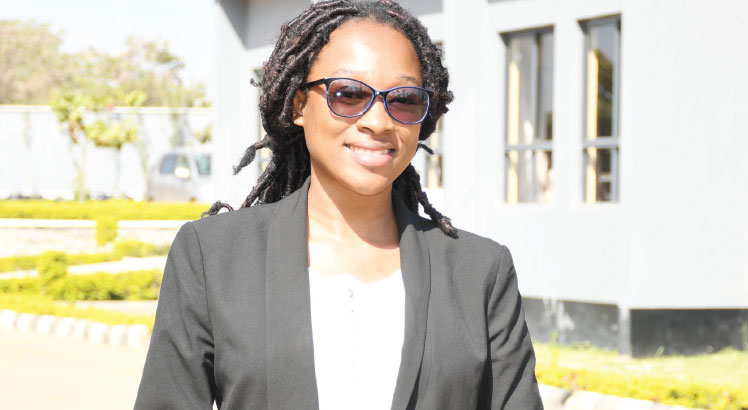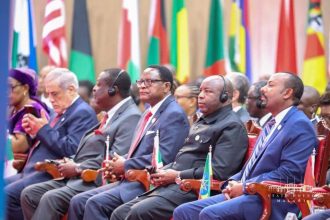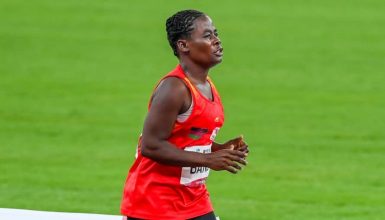Helping children with chronic conditions learn
Pollyanna Kachikuni, 24, had struggles to learn due to an inherited disorder caused by her sickle-shaped red blood cells detected in 2006 when she was eight years old.
“I first fell sick in 2011 when I was sitting the Junior Certificate of Education examinations. I took the exam in a tree shade under the supervision of an invigilator and my mum,” she recalls.
Shortly after the examinations, the girl with sickle cell disease was admitted to hospital. The hereditary condition is triggered when a child receives two sickle cell genes, one from each parent.
This affected her education as she spent most of her time bedridden while her peers went to school.
Today, Pollyana counts herself lucky that she passed the national examination and achieved her goal to become a teacher and a role model for young people.
She is a Standard Three teacher at Ntsiriza Primary School in Lilongwe.

Pollyana says even some health workers underrated her pain and chances in life.
“I once attempted suicide because a health worker made me feel so useless as if I do not deserve to live. It made me feel low,” explains Pollyanna.
She dreams to establish a charity to teach people about sickle cells and lessen the hardship faced by people with the condition.
“Most people in Malawi don’t know their genetic make-up before marrying. My goal is to senstise the nation to sickle cell, which is so painful that I pity children with the condition,’’ she says.
Tiyamike Msangazi Makondo, 23, was diagnosed with Type 1 diabetes in 2010 when she was nine.
This also affected her school journey.
She recounts: “I could faint at school when my sugar levels dropped. My schoolmates would say amakomoka [epileptic] without really knowing my condition. Some teachers were indifferent to my cry for help. This persisted up to secondary school.”
Tiyamike and Pollyanna are convinced that with adequate support, children and adolescents with chronic diseases can learn, achieve their dreams and do anything like their peers.
“Parents and affected children must not live in denial. Accepting and facing the situation head-on is crucial,” says Tiyamike, now married.
Six years ago, Catherine Nelson gave birth to a baby with cerebral palsy.
Her son, Bright, does not go to school and cannot do things on his own like his agemates.
“Many people used to mock me that I have given birth to a child with a small head. I felt belittled, but relief came when health workers referred me to St John Hospital where Bright has been receiving support,” she states.
Dr Amos Msekandiana is a medical specialist who treats children with conditions caused by problems with hormones, including diabetes, at Kamuzu Central Hospital in Lilongwe.
The African Child Foundation (ACF) technical adviser for the says most chronic and non-communicable conditions such as sickle cell, diabetes and cerebral palsy, are manageable with early detection.
“These conditions don’t just impact the physical well-being, but also the emotional and mental health of both the children and their parent or guardians,” he explains.
ACF empowers the affected children and guardians for improved care wherever they go.
Civil Society Education Coalition executive director Benedicto Kondowe says inclusive teaching and learning is crucial in supporting children with chronic conditions to excel in school and their communities.
To him, clear expectations can help reduce stress and anxiety that ruin the health conditions.
“Teachers must be sensitive to the emotional well-being of students with chronic health conditions,’ says Kondowe. “Teachers must work with pupils to implement necessary accommodations, including extra breaks, flexible scheduling, extended time for assignments or tests and access to necessary medications or medical equipment.”
ACF has rolled out a Healthy Schools Programme to equip learners and teachers with the knowledge and skills for identifying and managing chronic diseases among children.
ACF board member Ibrahim Nthalika wants the country’s education system to look at the silent crisis from the health angle.
“We have an advocacy component to look at the current policy environment,” he says. “If the policy framework does not allow the teachers to help the child, inclusive education will not work out.”
Nthalika also urges government and its partners to expand the initiative nationwide.
“Some learners require special support. For instance, children with diabetes have unique dietary needs, so they cannot learn or sit examinations for two hours without being allowed to go out and eat something,” he explains.
Founded by the Africa Humanitarian Goodwill Ambassador award winner Triephornia Mpinganjira, ACF is implementing the three-year project in Lilongwe, Blantyre, Kasungu and Neno.





